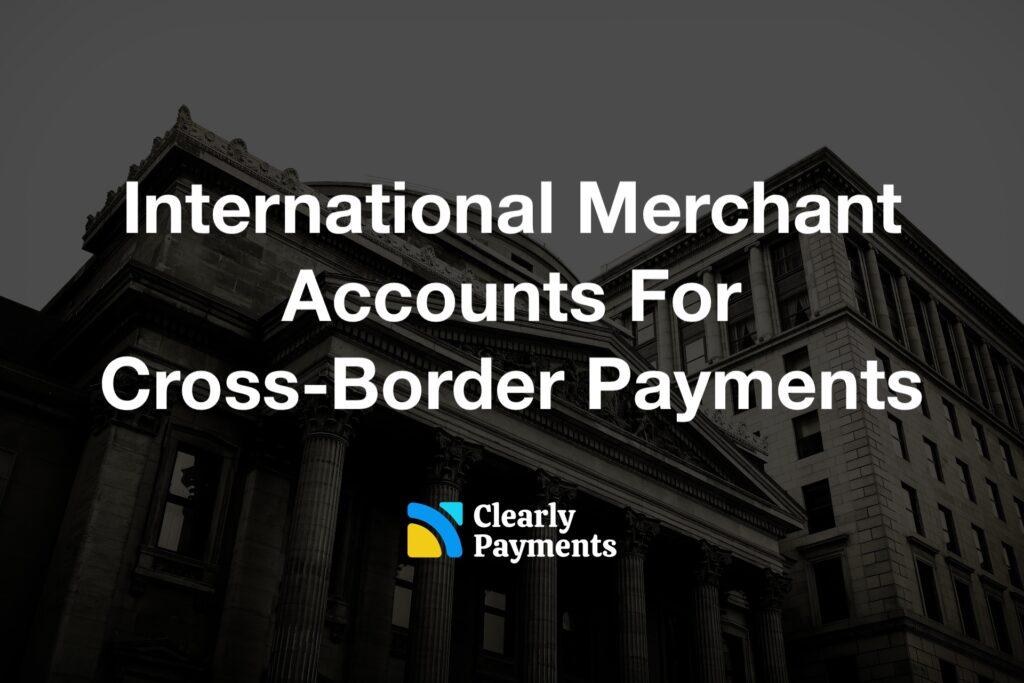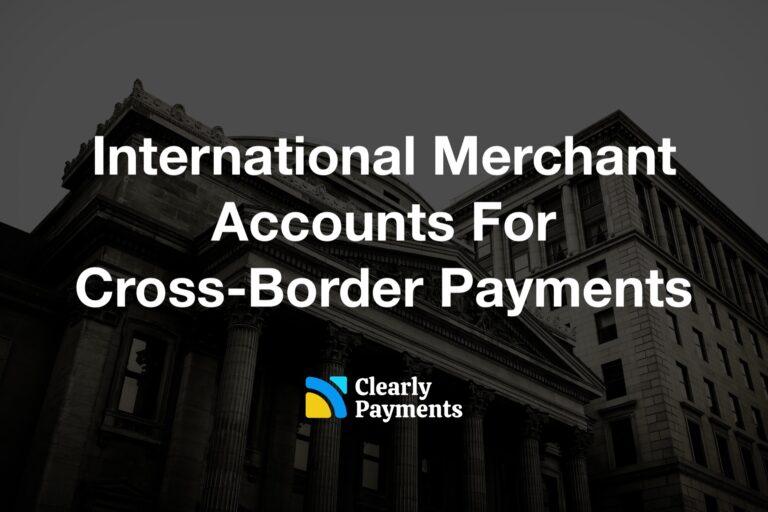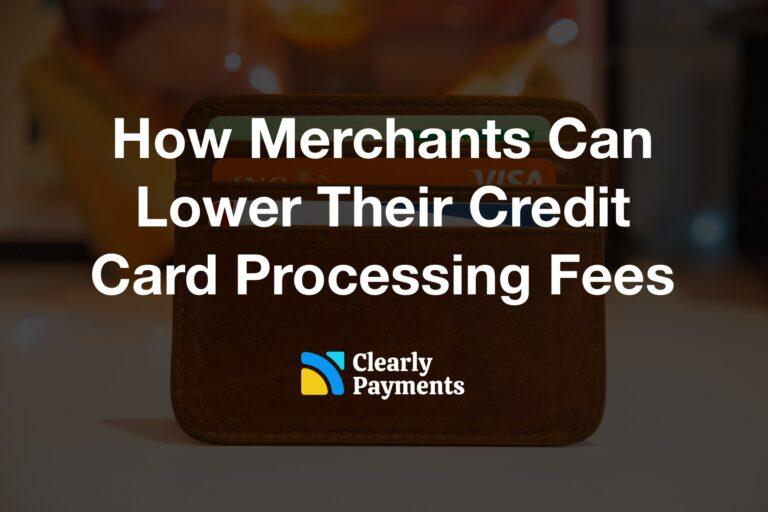In a time defined by globalization, businesses often look to cross international borders for expansion. One pivotal tool that facilitates this global reach is the international merchant account. These accounts, tailored for cross-border transactions, enable businesses to accept payments in various currencies and broaden their customer base globally.
Understanding its intricacies and leveraging its capabilities can be the key to unlocking new markets and opportunities. This article gives an overview of international merchant accounts, exploring their benefits, potential challenges, and strategies to maximize their impact.
What is an International Merchant Account?
An international merchant account is a financial service that enables businesses to accept payments from customers around the world. Unlike traditional merchant accounts, which typically have limitations on cross-border transactions, international merchant accounts facilitate transactions in various currencies and cater to a global customer base.
Multi-Currency Transactions: One of the defining features of international merchant accounts is their ability to process payments in multiple currencies. This flexibility allows businesses to engage with customers worldwide, offering a seamless shopping experience regardless of the buyer’s location.
Global Payment Processing: International merchant accounts leverage a network of processors to handle transactions globally. This is particularly advantageous for eCommerce businesses, enabling them to tap into international markets and expand their reach beyond borders.
Risk Management: To mitigate the complexities associated with cross-border transactions, international merchant accounts often incorporate robust risk management tools. These tools help identify and prevent fraudulent activities, providing a secure environment for both businesses and customers.
Currency Conversion and Localized Settlements: Some international merchant account providers offer currency conversion and localized settlements, allowing businesses to receive funds in their preferred currency. This can help reduce currency conversion costs and streamline financial operations.
Who Uses International Merchant Accounts
International merchant accounts play a pivotal role in the operations of diverse businesses and industries aiming to extend their footprint beyond domestic borders. These accounts, known for their adaptability, are instrumental for a wide range of enterprises seeking global expansion. Here’s a closer examination of the businesses that commonly leverage international merchant accounts and the benefits they derive from them.
Online Retailers and eCommerce: One of the primary beneficiaries of international merchant accounts is the realm of e-commerce. Global online stores, which cater to customers worldwide, rely on these accounts to facilitate transactions in multiple currencies. The flexibility provided by international merchant accounts allows e-commerce businesses to seamlessly navigate the complexities of global transactions, offering products and services on an international scale.
Travel and Hospitality: Businesses in the travel and hospitality sector, including hotels, airlines, and travel agencies, greatly benefit from international merchant accounts. Given the international nature of travel, these accounts streamline the acceptance of payments from customers across different countries. This facilitates a smoother booking and payment process for global patrons.
Digital Goods and Services Providers: Enterprises in the digital realm, such as software companies, content creators, and providers of online courses, find international merchant accounts indispensable. These accounts support the sale of digital products and services to a global audience, accommodating the diverse payment preferences and currencies of customers around the world.
Freelancers and Consultants: Individual service providers, including freelancers and consultants, leverage international merchant accounts to receive payments from clients worldwide. This is particularly valuable for professionals offering their expertise and services across borders, ensuring a secure and efficient cross-border payment process.
Manufacturing and Exporting Companies: For companies engaged in manufacturing and exporting goods on an international scale, international merchant accounts play a vital role in facilitating smooth and efficient cross-border transactions. These accounts enable businesses to receive payments from buyers in different regions, contributing to the ease of global trade.
Subscription-Based Businesses: Businesses offering subscription-based services, such as streaming platforms, online magazines, or software subscriptions, rely on international merchant accounts for managing recurring billing. These accounts support the complexities of subscription services on a global scale, ensuring seamless and uninterrupted access for subscribers worldwide.
Event Management: Event organizers dealing with global conferences, seminars, or other events benefit from international merchant accounts. These accounts facilitate the efficient processing of transactions related to international events, accommodating participants and sponsors from various countries.
Cross-Border Marketplaces: Global market platforms that connect buyers and sellers worldwide require a robust payment infrastructure. International merchant accounts enable these cross-border marketplaces to handle transactions in different currencies, fostering a conducive environment for global commerce.
Nonprofits and Charities: Even in the realm of philanthropy, international merchant accounts find utility. Nonprofit organizations and charities engaged in global fundraising activities leverage these accounts to collect donations from supporters around the world. This ensures a secure and efficient process for global contributors to contribute to meaningful causes.
Fees for International Credit Card Transactions
In international commerce, businesses must navigate a complex landscape of fees associated with credit card transactions. At the forefront of these charges is the currency conversion fee, a percentage-based cost incurred when customers make purchases in currencies different from their card’s native currency. Cross-border transaction fees from card networks compensate for the intricacies and risks inherent in transactions between merchants and cardholders located in different countries.
Interchange fees further contribute to the cost equation, representing charges paid by acquiring banks to issuing banks for processing credit card transactions. The variability of these fees in international transactions depends on factors like card type, transaction amount, and the countries involved. Processing fees incurred throughout the transaction process, dynamic currency conversion fees, network fees imposed by global payment networks, and chargeback fees add nuances to the fee structure.
International Transactions in eCommerce
International transactions in eCommerce involve the exchange of goods and services between online merchants and customers located in different countries. One of the key challenges lies in facilitating seamless and secure payment processes that accommodate various currencies, payment methods, and regional preferences. This requires robust payment gateways and platforms capable of handling the complexities of cross-border transactions.
Currency conversion is a crucial aspect of international eCommerce transactions. Online merchants must be equipped to dynamically convert prices into the local currency of the customer, considering fluctuating exchange rates. Additionally, providing a variety of payment options, including region-specific methods and popular international payment gateways, enhances the customer experience and can significantly impact conversion rates.
Security measures, such as fraud detection and prevention, become paramount in international eCommerce to build trust and safeguard sensitive financial information across diverse regulatory environments. As eCommerce continues to break down global barriers, businesses navigating international transactions must prioritize adaptability, security, and user experience to thrive in the interconnected digital marketplace.
Taxes With International Transactions
Navigating taxes in international transactions is a crucial aspect for businesses engaged in global trade. The complexity of tax regulations can vary significantly from one country to another, posing challenges that require careful consideration and strategic planning.
One primary tax in international transactions is Value Added Tax (VAT) or Goods and Services Tax (GST), depending on the jurisdiction. Many countries impose these taxes on the sale of goods and services, and compliance is essential for businesses to avoid legal issues and financial penalties. Businesses need to be aware of the VAT or GST rates in the countries where they operate and tailor their pricing and invoicing accordingly.
Another critical tax consideration is the handling of customs duties and import/export taxes. When goods cross international borders, they may be subject to customs duties and other levies. Understanding the specific regulations of each country involved in the transaction is essential to calculate and account for these costs accurately.
Transfer pricing is a tax-related concern for multinational businesses with related entities in different countries. Ensuring that prices for goods and services exchanged between these entities are set at fair market value is crucial to comply with transfer pricing regulations and avoid potential disputes with tax authorities.
To navigate the complexities of international tax regulations, businesses often seek the expertise of tax professionals or use specialized software that can assist in calculating taxes based on the intricacies of cross-border transactions.
How To Get An International Merchant Account
Securing an international merchant account is a strategic move for businesses aiming to broaden their global presence. Start by researching trustworthy payment service providers experienced in facilitating cross-border transactions. Clarify your business needs, considering factors such as currencies, target countries, and transaction volumes.
Compare fee structures, including transaction fees and currency conversion costs, among different providers, and opt for transparency to avoid unexpected charges. Prioritize security features to safeguard customer data and prevent fraud.
Get the best international merchant account with TRC-Parus
- Lowest-cost processing in the industry
- Fund transfers in less than one day
- A full set of payment products to accept payment anytime, anywhere
- World-class customer service




